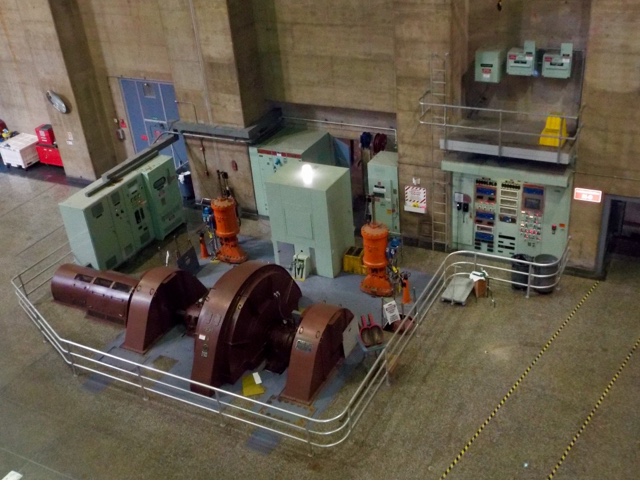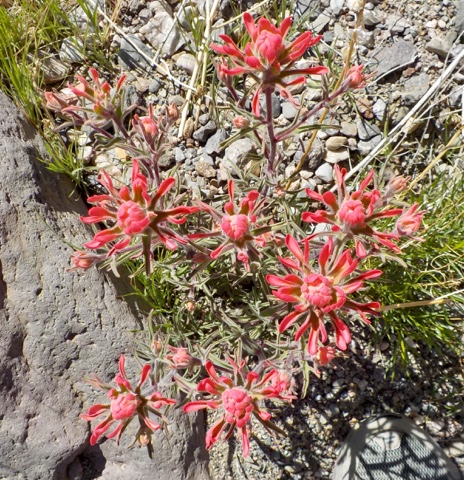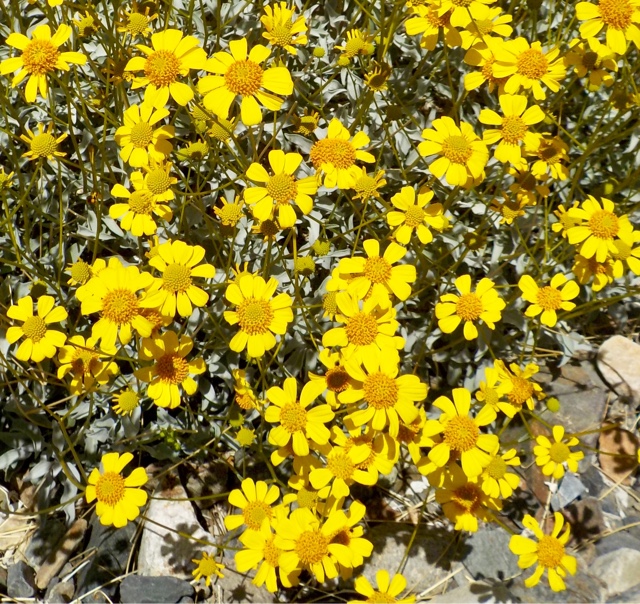For years I've driven past Hoover Dam en route to a better place called Death Valley National Park. As an American history buff, I've always wanted to stop, but the call to wilder places beckoned me.
Recently Barley the Van chose to get temporarily sick in nearby Las Vegas. The timing was right to pay a visit (with a rent-a-wreck) to "America's Seven Modern Civil Engineering Wonders." I'll say it now, it was worth my time and $30 for the Dam Tour.
After going through a security check point, me and the Wreck were permitted passage across the top of the dam. I parked in Arizona and walked back to Nevada. My first impression of the Dam was "there's a lot of concrete below me."
Hoover Dam Fun Fact Number One: A two lane 4,000 mile highway (San Francisco to New York) could have been constructed with the concrete used to create this monstrous river impediment.
After going through a second security check, similar to an airport screening, I purchased my tour ticket. (No AAA or AARP discounts).
It's a one hour tour split up between the hydroelectric power plant and the Dam itself. The guides glazed over the historical significance of the Dam, so I'll fill you in.
Construction began during the Great Depression (1931). Folks were desperate for employment. (In other words, the opposite of me). Men were willing to chance it all for a livable wage. Over a 100 people died in the dam's construction. Most of them from working in poorly ventilated tunnels containing high concentrations of carbon monoxide. (OSHA wasn't established until 1971). Work went on around the clock like a Walmart Supermarket. The project came in under budget and completed two years ahead of schedule.
The Bureau of Reclamation's voice boxes spoke the truth about the Dam's purpose. To provide cheap water for agricultural use. (80%) Sure, we all need to eat, but much of those precious acre-feet (the amount of water to cover an acre, one-foot deep) of liquid is wasted on low value water intensive crops. I.E. Cotton, hay and alfalfa. Pecan trees are wetted down in the desert too! That's just wrong!
As far as hydroelectric generated capabilities, Walter the guide was honest as well, "about one million households" worth of electrons. Not that impressive a number when the lower basin states contains over 20 million electricity users.
Please, don't get me going about the Dam's benefits of flood control. By placing homes, gardens and businesses in a flood plain, you are running a risk.The long term odds are against you. How long can you tread water?
On the Dam building portion of the tour, Hal the guide spoke about the spillways. "In case of big water years, the extra volume would be diverted around the Dam. It wouldn't be overtopped. The spillways can move two Niagara Falls amount of water together"
(About 400,000 cubic feet/second). There's speculation the Colorado River ran at half million CF/S in rare pre-Dam years.
I then asked if the big water year of 1983 caused cavitation in the spillways. "Yes, there was damage." I know that's an understatement. The overflow spigots was spitting out concrete and chunks of canyon walls. Fortunately, the ridiculous flow abated before a catastrophic failure occurred. The photo below shows the 1983 "bathtub ring" watermark very well.
BTW: The spillways bypass tunnels are 50 feet in diameter. That's a huge orifice.
Moral of this blog? Anything mankind can do, Mother Nature is capable of undoing. She's patient and way more powerful than we are.
For two great reads on this subject check out: John McPhee's "The Control of Nature."
And "The Emerald Mile" by Kevin Fedarko.
I could only aspire to write as well as these fine authors.
Use water responsibly. In the Southwest of America, it's a highly prized commodity.
Last fun fact: The Colorado River has been involved in more court battles than any other waterway in the World. In the Southwest, whiskey's for drinking, water's for fighting.
Cheers!
I'm escaping from Las Vegas today.
Jeff.
























